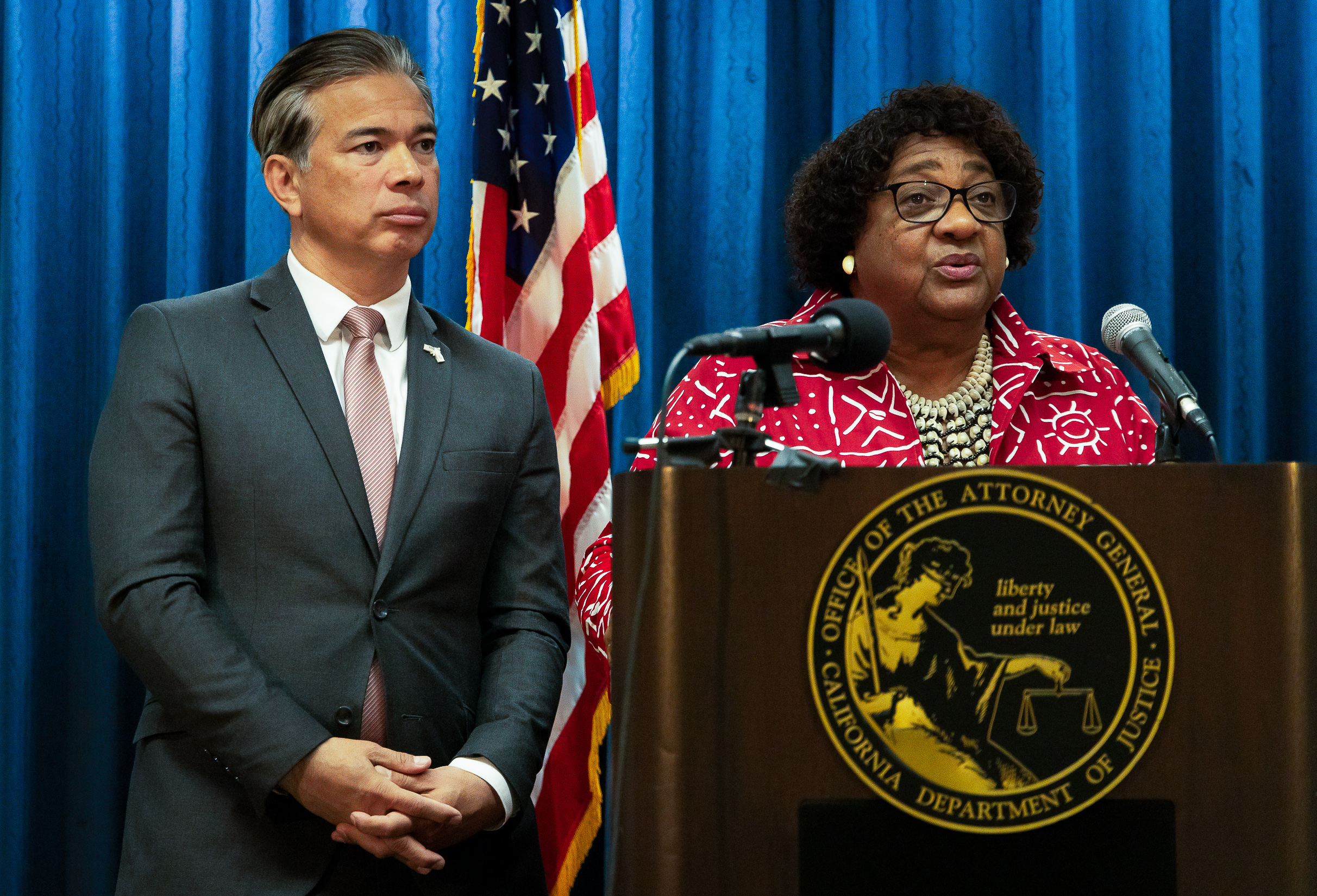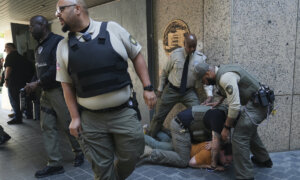Huntington Beach’s recently approved measure requiring voter ID in local elections has prompted a legal challenge from top California leaders.
Attorney General Rob Bonta and Secretary of State Shirley N. Weber, the state’s chief elections official, announced the lawsuit at an April 15 news conference, challenging the city’s Measure A, which gives Huntington Beach the authority to impose voter ID requirements for elections beginning in 2026.
“The right to freely cast your vote is the foundation of our democracy, and Huntington Beach’s voter ID policy flies in the face of this principle,” said Mr. Bonta in a press release.
Ms. Weber said the measure conflicts with state law and harms California voters.
“Not only is it a solution in search of a problem, laws like these are harmful to California voters, especially low-income, the elderly, people of color, those with disabilities, and young voters,” she said.
City Attorney Michael Gates in his own statement said the measure is in line with California law and follows the will of the people, which the city will “vigorously uphold.”
“The people of Huntington Beach have made their voices clear on this issue,” he said.
Mr. Gates said the California Constitution provides charter cities like Huntington Beach with the authority to implement such measures for local elections. He also said the lawsuit is in direct conflict with a recently proposed Senate bill that would prohibit cities from adopting their own election laws, because if a local law requiring voter ID is already illegal, why is legislation necessary?
Introduced earlier this year by Sen. Dave Min, Senate Bill 1174 proposes to ban local governments such as Huntington Beach from imposing “locally determined” voter ID requirements and makes clear that the state has “exclusive jurisdiction” when it comes to the voter verification process statewide, according to a press release from the senator.
In his statement, Mr. Gates argued that the Bonta press release asserting the illegality of Huntington Beach’s law contradicts the actions by state lawmakers and “that blatant inconsistency speaks volumes.”
Under the measure, which was approved by 53 percent of Huntington Beach voters, the City Council has the authority to require voter ID, provide at least 20 locations for in-person voting, and monitor ballot drop boxes in the city.
“Obviously, this is what [the voters] want. We put it out there on the ballot, they said we want this and the state is doing everything within their power to stop us from honoring what the voters have been asking us for,” Huntington Beach Mayor Gracey Van Der Mark told The Epoch Times in a recent interview.
She said when it comes to in person voting, with no cameras inside polling locations, anyone could place a vote for another and there would be no way to catch wrongdoers.
“When I went to vote. I walked in, they asked me for my name, they asked me for my address, and that was it. My neighbor could have gone in and said I’m Gracey Van Der Mark, this is my address, and she would have been given my ballot,” she said.
In response to Mr. Gates, Mr. Min fired back in his own statement that his bill does not illustrate that Huntington Beach’s measure is legal, but only that it is “not yet decided, and therefore ambiguous,” whether such is permissible.
“The last thing we need right now, when Donald Trump is falsely attacking the legitimacy of the 2020 election results, is 100 different cities in California imposing 100 different sets of election requirements to try to get featured on Fox News,” the Democrat from Irvine said in his statement.
He mentioned that Orange County’s district attorney earlier this year also found no evidence of election fraud in Huntington Beach or elsewhere and that city officials haven’t provided any.
“If there are problems with voting in Huntington Beach, then they should present evidence of these problems to the state Legislature, and we can adopt the appropriate changes,” he said.
Others say the city could hold its own elections, but that would be costly, according to an assistant professor at Chapman University’s law school.
“They would have to train staff to administer an election and to maintain its own election equipment. ... It would need to create polling places, hire volunteers to do this and then to be able to perform an accurate and verifiable vote,” Nahal Kazemi told City News Service.
She said doing so would be a “sizeable undertaking” and that it would only work for local elections, not federal or state ones, which would be administered by the county, possibly confusing voters.
“There’s no doubt people would be confused by this. ... You would see the disenfranchising of people because people would not understand this only applies to municipal elections. This will dissuade them from attempting to vote. That’s the strongest argument the state has,” she told the news service.














